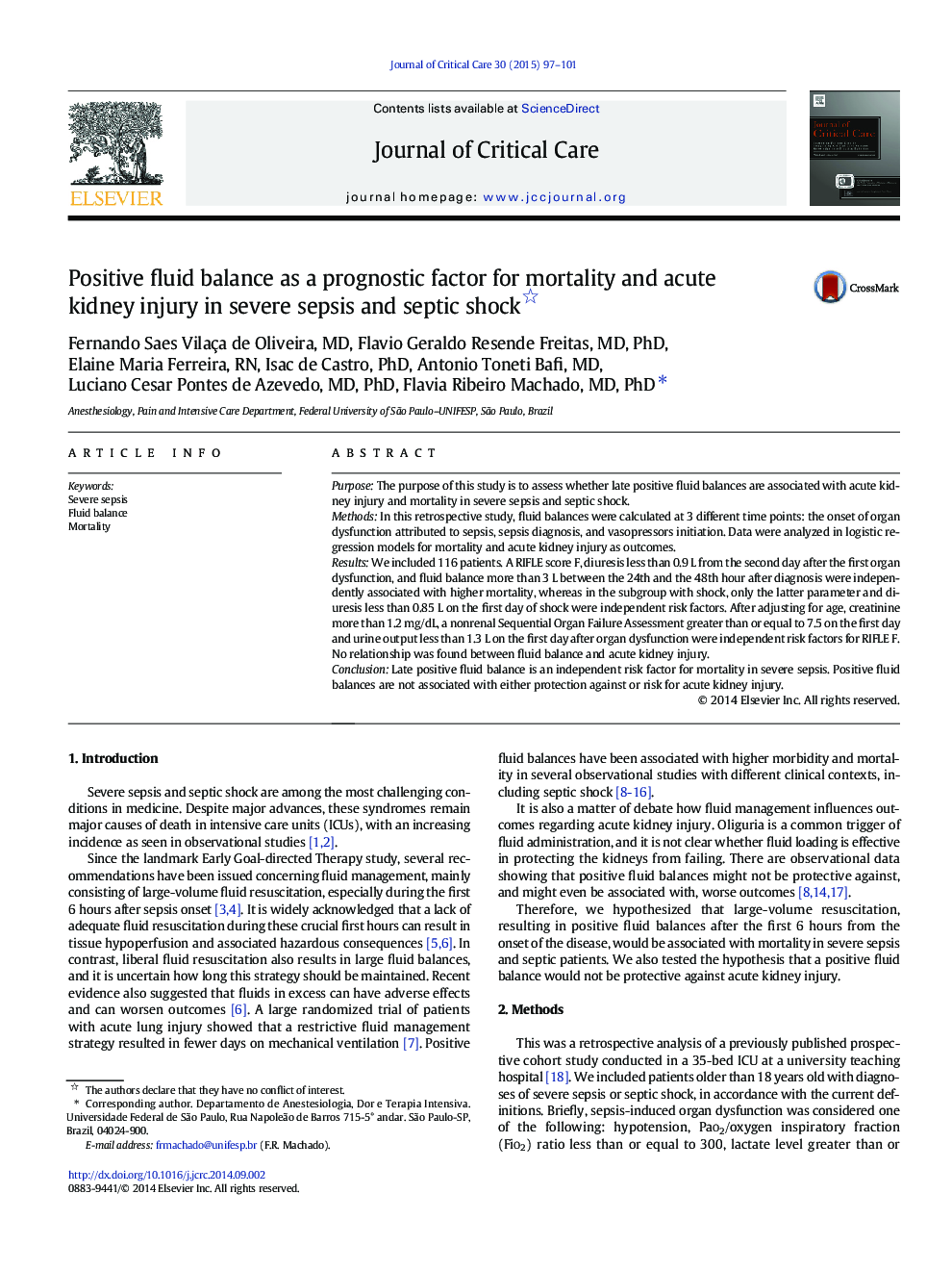| Article ID | Journal | Published Year | Pages | File Type |
|---|---|---|---|---|
| 5885660 | Journal of Critical Care | 2015 | 5 Pages |
PurposeThe purpose of this study is to assess whether late positive fluid balances are associated with acute kidney injury and mortality in severe sepsis and septic shock.MethodsIn this retrospective study, fluid balances were calculated at 3 different time points: the onset of organ dysfunction attributed to sepsis, sepsis diagnosis, and vasopressors initiation. Data were analyzed in logistic regression models for mortality and acute kidney injury as outcomes.ResultsWe included 116 patients. A RIFLE score F, diuresis less than 0.9 L from the second day after the first organ dysfunction, and fluid balance more than 3 L between the 24th and the 48th hour after diagnosis were independently associated with higher mortality, whereas in the subgroup with shock, only the latter parameter and diuresis less than 0.85 L on the first day of shock were independent risk factors. After adjusting for age, creatinine more than 1.2 mg/dL, a nonrenal Sequential Organ Failure Assessment greater than or equal to 7.5 on the first day and urine output less than 1.3 L on the first day after organ dysfunction were independent risk factors for RIFLE F. No relationship was found between fluid balance and acute kidney injury.ConclusionLate positive fluid balance is an independent risk factor for mortality in severe sepsis. Positive fluid balances are not associated with either protection against or risk for acute kidney injury.
